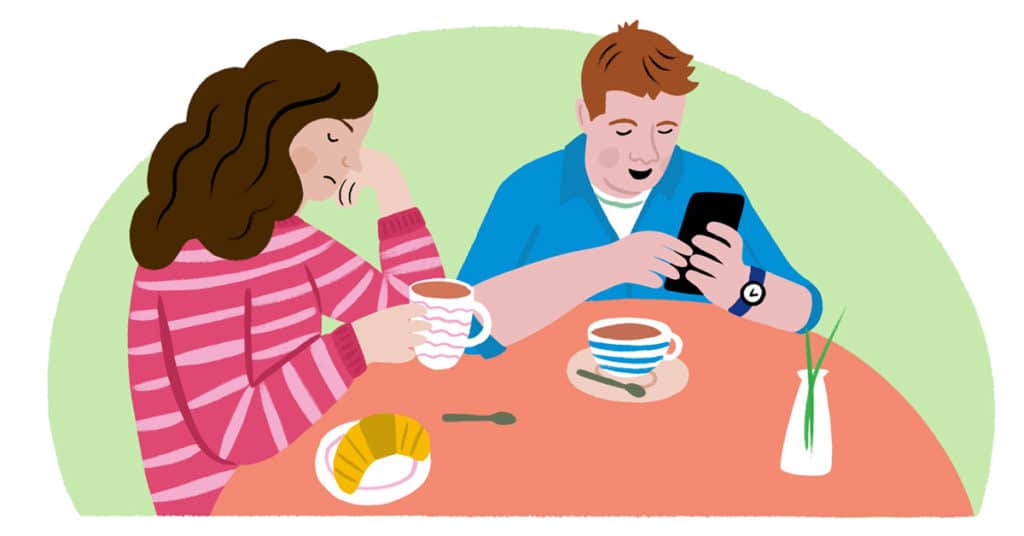
By Cathy Cassata
Clinically reviewed by Dr. Gayle Jensen-Savoie
Many people with ADHD live with Rejection Sensitive Dysphoria, or RSD. While the phenomenon isn’t an official diagnosis in the Diagnostic and Statistical Manual of Mental Disorders, Fifth Edition — or DSM-5 — many ADHD experts recognize it as a person’s difficulty handling real or perceived rejection or criticism.
“No one likes being criticized or rejected, but for someone with ADHD, it can sometimes be devastating. It literally knocks them down. They talk about it feeling like being physically punched or stabbed in the chest,” says Dr. William Dodson, MD, a psychiatrist and ADHD expert.
The physicality of the symptoms is why “dysphoria” is part of the name. Dodson explains that when researchers originally studied the phenomenon in the mid-1960s, they asked participants what this devastating pain felt like.
“All people could describe is that its intensity was awful, terrible, and catastrophic. Dysphoria means difficult or impossible to bear,” says Dodson. “This is not some minor twinge. It’s unbearable, emotional pain.”
Because it’s so painful, Dodson says, many people with ADHD will go through life vigilant about trying to avoid being rejected. “Consequently, the vigilance effect is that they tend to see it where it’s not.”
Below Dodson shares more about RSD and how to cope with it, based on his decades of experience treating people with ADHD.
ADHD Online: Why did you dedicate much of your career to RSD?
Dodson: I started writing about RSD because after I’d treated people with ADHD for two or three years, they’d take this huge risk and tell me about this aspect of their lives. I started asking many of my patients: “For your entire life, have you always been much more sensitive than anyone else you know to teasing, rejection, criticism or your own perception that you failed or fallen short?”
Literally 99% of patients with ADHD who I asked were startled that I knew their secret. They thought they were the only person in the world who went through these experiences. They were terribly embarrassed by it. They didn’t tell their spouses or best friends for fear that they’d think they were crazy or weak and that it would be used against them.
Because I specialized in adult ADHD, I saw a lot of people who weren’t able to get successful treatment elsewhere. People were referred to me from Egypt, India, Peru and more.
I asked patients what aspect of ADHD was most impairing, caused the most pain and most problems in their lives. Their responses fell into the following categories: about 40% would say their work performance; about 25% would say insomnia; about 35% of would say rejection sensitivity.
ADHD Online: What are some examples of how RSD may occur?
Dodson: It can be triggered by anything. It doesn’t have to be real. It’s merely the perception that someone has withdrawn their love or approval or respect.
A person could be walking down the hall, and someone doesn’t say “hello” to them. They think, “They must hate me. What did I do for them to hate me?” And they will be in that spiral of thinking for a day or two unable to think of anything else.
Another example is if the person is up for a promotion, but it’s given to someone else. The person might think they’re hated or about to get fired.
ADHD Online: Does having RSD impact a person’s personality?
Dodson: RSD is so profound that it has a large contribution to what the personality outcome of the person may be.
By far, the most common personality outcome is the people pleaser. Most people with ADHD could see a person come in the door and, within a matter of seconds, know what that person would like, approve, praise and accept, and then try to give them all those things. They are constantly anticipating their family’s needs, so their family never experiences disappointment.
Being a perfectionist is another personality outcome of RSD. They reach to be the best at everything they do. The problem is today’s audience doesn’t applaud yesterday’s performance, so they have to be constantly proving themselves, testing themselves, and showing everyone that they are above reproach. They may look like they are masters of the universe, but they live in fear that something could happen — they might make a mistake and everyone’s approval and admiration would disappear.
Being a slacker is another personality outcome. Some people give up trying rather than risk failing because the whole notion of trying and failing in front of others is so terrifying that they don’t even try. I have a lot of people in my practice who never asked someone on a date or applied for a job because the imagination of someone saying “no” is devastating.
ADHD Online: What are the challenges of getting people help for RSD?
Dodson: It’s a big problem because of the following reasons: People are afraid to tell loved ones and doctors about it for fear of not being believed or criticized. It isn’t well-researched because it is a newly rediscovered concept from the early days of ADHD investigations. Research takes lots of time and funding so it may be years before there are any published studies. (And) the other main impediment to research is the fact that rejection sensitivity isn’t always present (all the time; it comes and goes). In fact, there are more times when it isn’t present, and when it is, there’s no way to measure it.
ADHD Online: Does RSD present differently in children?
Dodson: Yes. In children, parents tend to see sudden meltdowns. The kids dissolve either in anger and a rage response or in inconsolable tears. Of course, when this happens, the kids don’t have the self-perception to know what’s going on or the ability to articulate what is going on.
ADHD Online: Is there a spectrum of RSD?
Dodson: Yes. There are some people who can barely function and some where it’s a minor annoyance.
ADHD Online: What treatments can help manage RSD?
Dodson: RSD is biologic and about 50-60% of people have a life-changing response to medications in the alpha agonist group. Monoamine oxidase inhibitor anti-depressants also have shown a striking ability to relieve and protect from RSD.
Cognitive behavioral therapy, or CBT, that is used for panic disorder can also help a person learn how to cope with RSD in the moment. For instance, CBT can teach a person to tell themself that what they’re feeling is just a perception and that it will end after it runs its course.
ADHD Online: What RSD resources do you recommend?
Dodson recommends the following as good sources of information on RSD:
- CHADD.org can help connect people with local meetings, support groups, and doctors who are knowledgeable about ADHD and RSD.
- ADD.org provides support groups for adolescents and adults with ADHD.
- Additudemag.com publishes educational and updated articles about RSD.
- HowtoADHD.com YouTube channel by Jessica McCabe includes several videos on RSD.





